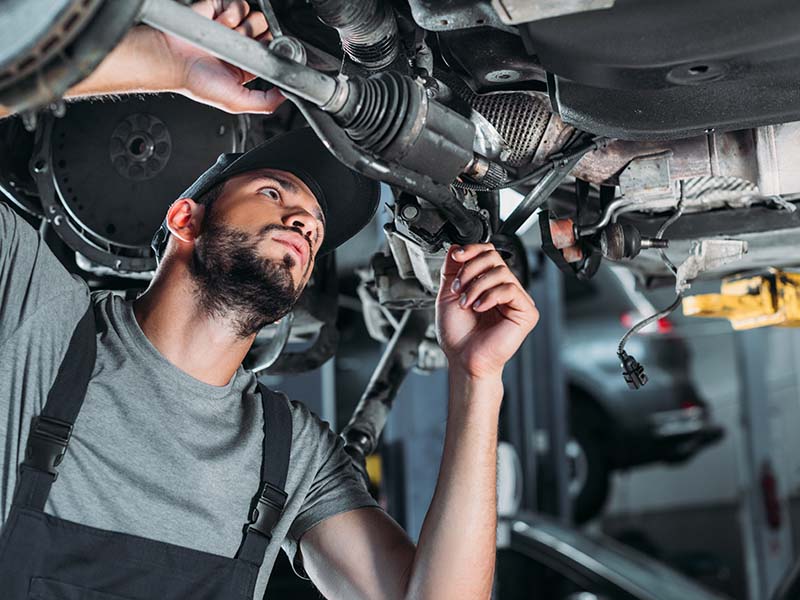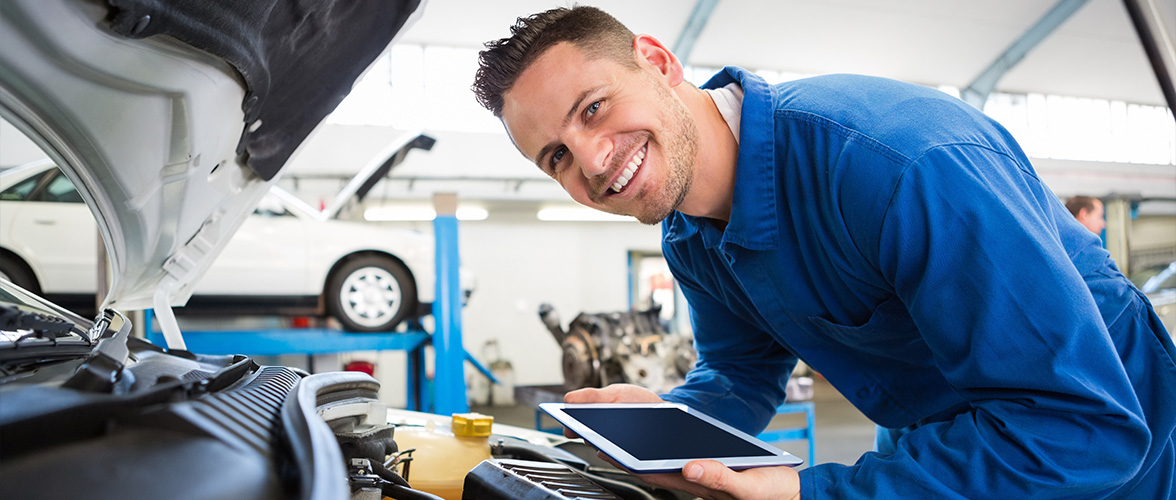All Categories
Featured
When your cars and truck starts to get too hot, it can be a frightening and stressful circumstance. Comprehending exactly how to respond in these moments and taking actions to protect against future getting too hot can help protect your car and stay clear of expensive repairs. If your automobile overheats and exactly how to stop it from taking place again., below's what to do.
If Your Car Overheats,What to Do. Draw Over and Turn Off the Engine The first point you must do if your auto starts to overheat is to pull over to a secure location, such as a parking area or the shoulder of the roadway. Switch off the engine instantly to avoid additional damages. Running an overheated engine can cause irreparable damages to the interior components, consisting of the radiator and cyndrical tube heads.
Allow the Engine to Cool Down After switching off the engine, provide it time to cool off. Opening the hood can help release warm, however beware as the engine and bordering areas may still be exceptionally warm. Wait at the very least 15-20 mins before attempting any kind of more actions.
Inspect the Coolant Level Once the engine has actually cooled, check the coolant level. Never open the radiator cap while the engine is hot, as this could trigger warm coolant to spray and shed you.
Examine for Leaks or Broken Pipes While you are checking the coolant level, check for any kind of noticeable leaks or harmed hose pipes under the hood. Fractured or damaged tubes can trigger coolant to leakage out, causing an overheating engine. You might require to call for roadside support or a tow to obtain the auto to a mechanic. if you spot any kind of concerns.
Call for Support If you can not recognize the source of the overheating or the concern continues after completing the coolant, it's best to ask for roadside assistance. Driving with an overheated engine can trigger serious damage to your automobile and leave you stranded.
![]()
Exactly How to Prevent Your Car from Overheating. Check Coolant Levels Frequently One of the main reasons for getting too hot is reduced coolant levels. If required, make it a behavior to inspect your coolant levels regularly and top them off. Refer to your car's guidebook for the suggested coolant combination and maintenance intervals.
Examine Your Radiator Your radiator plays an essential function in maintaining the engine cool. Guarantee there are no blockages or debris obstructing air flow with the radiator. If your radiator is blocked or harmed, it may not operate properly, bring about overheating.
Maintain Your Cooling System The cooling system must be purged and replenished occasionally. Over time, coolant can become infected or shed its effectiveness. Follow the supplier's referrals for flushing the system, generally every 30,000 to 50,000 miles.
Screen the Thermostat and Water Pump The thermostat manages the temperature level of the engine, while the water pump circulates coolant via the engine. It can cause the engine to overheat if either of these components falls short. Have your mechanic examine the thermostat and water pump throughout routine upkeep.
Stay Clear Of Overwhelming the Vehicle Overloading your vehicle, especially on hot days or long journeys, can stress the engine and the air conditioning system. Bear in mind your vehicle's weight restrictions and try to stay clear of carrying heavy loads, specifically when driving in extreme temperature levels.
Drive with Care Aggressive driving, such as speeding or rapid acceleration, can boost engine tension and warmth manufacturing. Reduce down, particularly on warm days or when driving up steep slopes, to reduce the threat of overheating.
![]()
Verdict. Recognizing what to do if your auto gets too hot can avoid more damage to your engine and aid you handle the circumstance safely. By frequently inspecting your coolant degrees, inspecting the radiator and hoses, and keeping the air conditioning system, you can lower the threat of overheating. With positive care and correct maintenance, your vehicle will certainly stay in excellent condition, ensuring you stay safe and stay clear of expensive repair work in the future.
If Your Car Overheats,What to Do. Draw Over and Turn Off the Engine The first point you must do if your auto starts to overheat is to pull over to a secure location, such as a parking area or the shoulder of the roadway. Switch off the engine instantly to avoid additional damages. Running an overheated engine can cause irreparable damages to the interior components, consisting of the radiator and cyndrical tube heads.
Allow the Engine to Cool Down After switching off the engine, provide it time to cool off. Opening the hood can help release warm, however beware as the engine and bordering areas may still be exceptionally warm. Wait at the very least 15-20 mins before attempting any kind of more actions.
Inspect the Coolant Level Once the engine has actually cooled, check the coolant level. Never open the radiator cap while the engine is hot, as this could trigger warm coolant to spray and shed you.
Examine for Leaks or Broken Pipes While you are checking the coolant level, check for any kind of noticeable leaks or harmed hose pipes under the hood. Fractured or damaged tubes can trigger coolant to leakage out, causing an overheating engine. You might require to call for roadside support or a tow to obtain the auto to a mechanic. if you spot any kind of concerns.
Call for Support If you can not recognize the source of the overheating or the concern continues after completing the coolant, it's best to ask for roadside assistance. Driving with an overheated engine can trigger serious damage to your automobile and leave you stranded.

Exactly How to Prevent Your Car from Overheating. Check Coolant Levels Frequently One of the main reasons for getting too hot is reduced coolant levels. If required, make it a behavior to inspect your coolant levels regularly and top them off. Refer to your car's guidebook for the suggested coolant combination and maintenance intervals.
Examine Your Radiator Your radiator plays an essential function in maintaining the engine cool. Guarantee there are no blockages or debris obstructing air flow with the radiator. If your radiator is blocked or harmed, it may not operate properly, bring about overheating.
Maintain Your Cooling System The cooling system must be purged and replenished occasionally. Over time, coolant can become infected or shed its effectiveness. Follow the supplier's referrals for flushing the system, generally every 30,000 to 50,000 miles.
Screen the Thermostat and Water Pump The thermostat manages the temperature level of the engine, while the water pump circulates coolant via the engine. It can cause the engine to overheat if either of these components falls short. Have your mechanic examine the thermostat and water pump throughout routine upkeep.
Stay Clear Of Overwhelming the Vehicle Overloading your vehicle, especially on hot days or long journeys, can stress the engine and the air conditioning system. Bear in mind your vehicle's weight restrictions and try to stay clear of carrying heavy loads, specifically when driving in extreme temperature levels.
Drive with Care Aggressive driving, such as speeding or rapid acceleration, can boost engine tension and warmth manufacturing. Reduce down, particularly on warm days or when driving up steep slopes, to reduce the threat of overheating.

Verdict. Recognizing what to do if your auto gets too hot can avoid more damage to your engine and aid you handle the circumstance safely. By frequently inspecting your coolant degrees, inspecting the radiator and hoses, and keeping the air conditioning system, you can lower the threat of overheating. With positive care and correct maintenance, your vehicle will certainly stay in excellent condition, ensuring you stay safe and stay clear of expensive repair work in the future.
Latest Posts
Signs When Your Car Needs Expert Auto Repair at Montclare Auto Repair
Published en
1 min read
Find Auto Services & More: Complete Auto Care Solutions from Montclare Auto Repair
Published en
1 min read
Recognizing When Your Car Needs Expert Car Repair at Montclare Auto Repair
Published en
1 min read
More
Latest Posts
Signs When Your Car Needs Expert Auto Repair at Montclare Auto Repair
Published May 26, 25
1 min read
Find Auto Services & More: Complete Auto Care Solutions from Montclare Auto Repair
Published May 24, 25
1 min read
Recognizing When Your Car Needs Expert Car Repair at Montclare Auto Repair
Published May 23, 25
1 min read